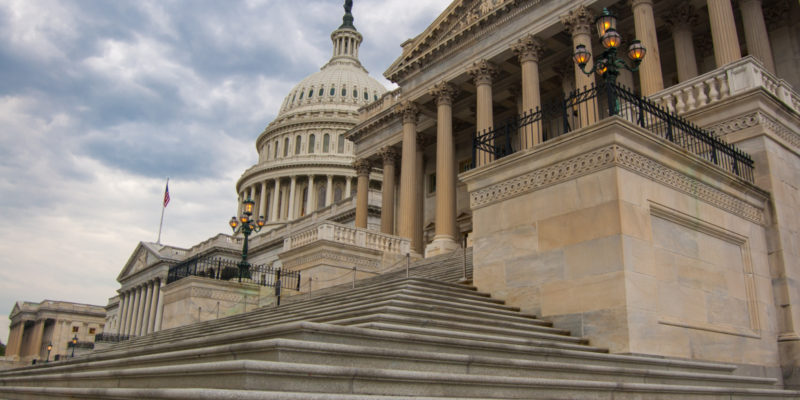WASHINGTON –The Senate gave final approval to a bill late Thursday to suspend the national debt limit and avoid default on the nation’s debt obligations. The legislation, previously passed by the House of Representatives after being negotiated byPresident Joe Biden and Republican House Speaker Kevin McCarthy, will result in a suspension of the debt ceiling until after the 2024 presidential election while introducing financial caps for domestic spending and restrictions for people who receive government benefits. The agreement will have a profoundly negative effect on lower-income communities, many of which are disproportionately comprised of Black and Brown people. The following is a statement from Damon Hewitt, President and Executive Director of the Lawyers’ Committee for Civil Rights Under Law:
“While we are glad that the federal government has not fallen off a fiscal cliff, we fear that this goal was accomplished in part by pushing some of the communities most in need closer to the edge. For all the good the bill may do for the nation’s macro-economy, it will come at a cost that will be unevenly borne. The bill adds new work requirements for older Americans receiving public assistance. While the bill exempts veterans, homeless individuals, and those who were in the foster care system, those who do not meet these criteria will have no recourse. The bill also effectively kills the student loan repayment freeze, which has helped millions, while also restricting the President’s ability to reinstate that type of moratorium in the future.
A deal that limits so-called “discretionary” governmental support in accessing needed resources, while increasing spending on the military-industrial complex (with an allowance for even more defense spending in the future), should give us all pause. We will soon see the real-life impact that policymakers in Washington have foisted onto those who can least afford it. And it is clear who will be hurt by these measures. Lower-income people, a disproportionate number of whom are Black people and other people of color, have consistently sacrificed to compensate for our nation’s preexisting obligations. But we should also ask the question—who benefits from taking these steps that will make life more difficult for so many people?
It’s all about the timing. These provisions clearly reflect preexisting political agendas, and their inclusion will have a less than marginal impact on the federal budget and debt. But including a sunset clause that kicks the debt ceiling can down the road until after the 2024 presidential election foreshadows political battle lines for the coming presidential campaign and beyond. In essence, this deal was less about economic strategy and more about future politics. And what a shame. Playing a political chess match with the nation’s economy is bad enough. But making poor people of color the pawns in that game is reprehensible.”
###
About the Lawyers’ Committee for Civil Rights Under Law – The Lawyers’ Committee for Civil Rights Under Law is a nonpartisan, nonprofit organization, formed in 1963 at the request of President John F. Kennedy to mobilize the nation’s leading lawyers as agents for change in the Civil Rights Movement. Today, the Lawyers’ Committee uses legal advocacy to achieve racial justice, fighting inside and outside the courts to ensure that Black people and other people of color have the voice, opportunity, and power to make the promises of our democracy real. For more information, please visithttps://lawyerscommittee.org


